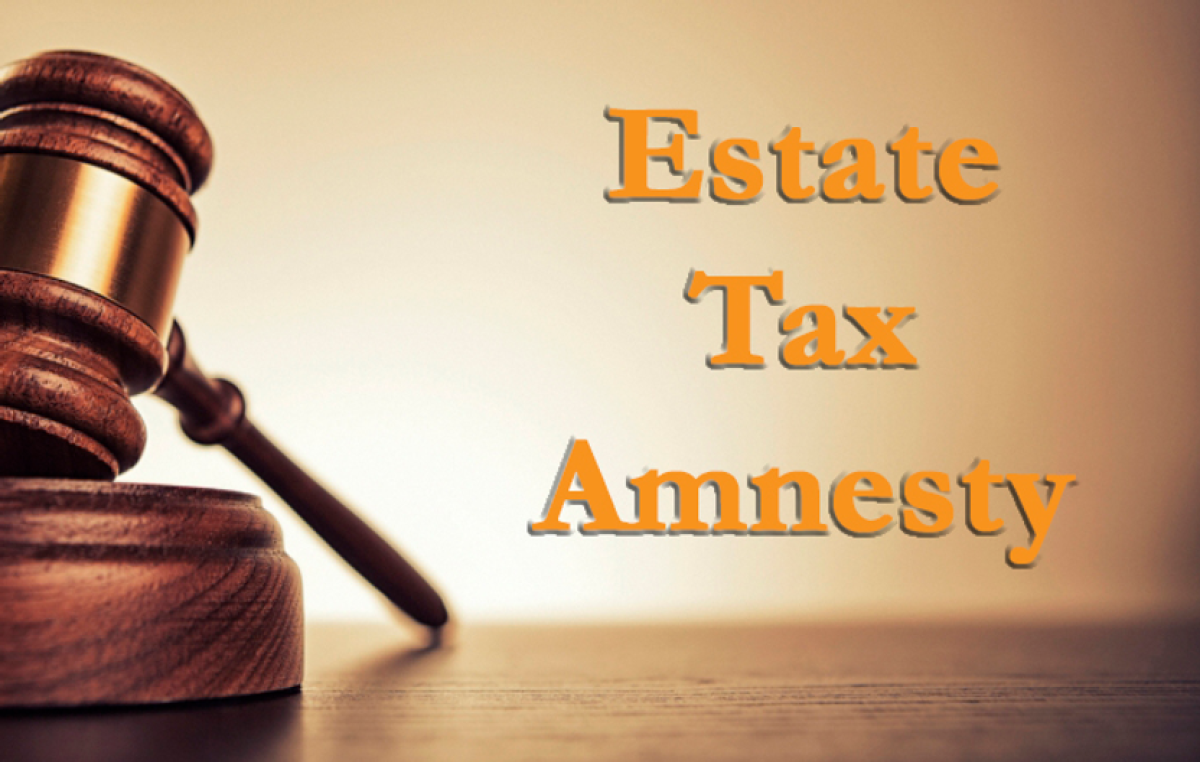DAVAO DEL NORTE (PIA)- - The Bureau of Internal Revenue (BIR) Tagum Revenue District Office (RDO) recently conducted a local information drive on the latest Estate Tax Amnesty Extension or the Republic Act No. 11956.
In the recent episode of "Sayron Ta! Pakigsayod: Serbisyo Alang sa Katawhang Pilipino," BIR Tagum Revenue Officer Aubrey Denis Grafe said the fresh law on estate tax amnesty provides wider coverage and easier filing process.
RA No. 11956 covers the estate and the properties of those who died on or before May 31, 2022 and it sets a deadline on June 14, 2025.
“So mas daghan ang ma cover sa kani nga amnesty extension (So, some would be covered by this amnesty extension),” she said.

In an online published article, chair of the House Committee on Ways and Means chair, Albay District Representative Joey Salceda, said that the new Estate Tax Amnesty law is expected to benefit some 920,000 Filipino families who have unsettled estates, including the 610,054 agrarian reform beneficiaries.
Covering the provinces of Davao del Norte and Davao de Oro, BIR Tagum RDO, however, has yet to compute the estimated number of families to benefit from this fresh renewal of estate tax amnesty in its area of coverage.
It is also yet to disclose the collection it made from the rollout of the previous estate tax amnesty laws since 2019.
Department of Budget and Management (DBM) online information reveals that from the enactment of the Tax Amnesty Law in 2019 or RA 11213, until March 31, 2023, the national government collected P7.41 billion from 133,860 beneficiaries who availed of the estate tax amnesty.
The renewed estate tax amnesty through RA 11956 is the third starting with the 2019 Tax Amnesty Law that set a deadline on June 15, 2021. This was extended for another two years due to COVID-19 pandemic until June 14, 2023 through RA 11569.
Meanwhile, the fresh renewal of estate tax amnesty through RA11956 brings ease in filing Grafe said, as BIR tax computation no longer requires extra judicial settlement of heirs.

“So pwedi ta magpa-compute sa karun base sa kadtong mandatory requirements; mobayad and then i-to-follow nalang sa nato ang extra Judicial Settlement of Estate (So we can apply for computation <of tax> based on the mandatory requirements; pay it and the Extra Judicial Settlement will just have to follow),” Grafe explained.
“Kani siya maka benefit ni siya atong mga especially naay mga igsuon, sa abroad, naa pa sa barko nga di pa maka pirma ani nga document (This can especially benefit those with siblings abroad, on board a ship who would not be able to sign the document),” she said, referring to the Extra Judicial Settlement document that needs the original signature of each heir.
She said the siblings can just file a Special Power of Attorney authorizing who among them to file the estate tax amnesty. BIR also needs the SPA of someone identified as the administrator of the estate whom the heirs have tasked to file the estate tax amnesty, she said.
The latest set of mandatory requirements in filing estate tax amnesty are the tax identification numbers (TIN) of all legal heirs, the TIN of the decedent, proof of ownership: the original title and the tax declaration.
In case of properties such as personal investments and bank deposits, she said these should be covered with certification from the bank indicating the value or amount at the time of the decedent’s death.
On the other hand, Grafe made it clear that the required decedents TIN is not the one used when he was still alive. The heirs have to file a new TIN of the decedent that can be processed over the counter of BIR.
She urged all heirs to take advantage of this latest estate tax amnesty saying this tax reprieve granted by the government frees the penalties of 25 percent tax surcharges, the 12 percent interest per annum and other compromised penalties imposed on unpaid taxes of the decedent’s estate and properties.
“Kung mo-avail ta kay Estate Tax Amnesty, walaon si penalties, and then ang kadtong 6% nga tax nalang ang magpabilin. So dako gyud siya ug tabang sa mga gusto mo process aning Estate Taxes <amnesty> (If we will avail the Estate Tax Amnesty, the penalties are removed, and only the 6 percent tax shall remain. So, this is a great help to those who would process the estate tax amnesty),” she said. (JMDA/ PIA Davao del Norte)




